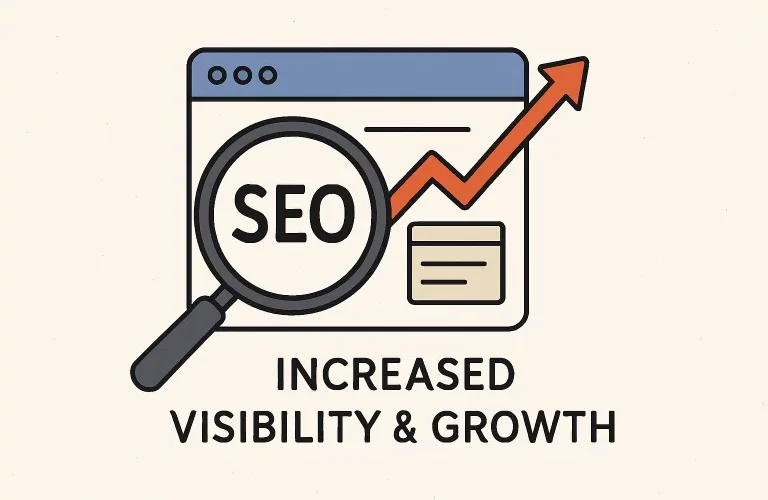In an era where digital competition is fiercer than ever, businesses must embrace every tool at their disposal to stay competitive and relevant. Search Engine Optimization (SEO)—and more specifically, San Francisco SEO for businesses operating in the Bay Area—has emerged as one of the most powerful drivers of sustainable growth for modern enterprises. It is no longer sufficient to simply have a website—the real challenge lies in achieving prominent visibility when potential customers are searching for your specific products or services. As millions of digital consumers turn to search engines such as Google to guide their information discovery and purchasing decisions, businesses that invest strategically in SEO are setting themselves up for enduring success.
This article explores how SEO acts as a catalyst for business growth, from expanding your online presence and growing brand recognition to attracting high-intent prospects and maximizing your return on investment (ROI). By leveraging reliable tactics and adapting to the fast-evolving landscape, SEO provides a foundation for delivering tangible business results and long-term value.
Enhancing Online Visibility
The Role of Organic Search in Web Traffic
When a potential customer initiates a search for a product or service, studies consistently show that they’re much more likely to click on one of the top results on the first page. In fact, organic search drives over 50% of all website traffic, making it the single largest source of visitors for most sites. Not only does this highlight the significance of earning a spot among the top search rankings, but it also illustrates how integral SEO is to overall digital strategy. Achieving high organic rankings is the result of meticulously crafted keywords, technically optimized site architecture, and delivering content that precisely addresses user needs. A business that ranks well organically is positioned to intercept consumers at one of the most critical points in their buying journey.
Brand Awareness Through Search Rankings
Frequent and consistent visibility at the top of search results has a compound benefit. As searchers repeatedly encounter your brand during their research, your business becomes more readily recognized and remembered. For many people, top rankings are synonymous with credibility and professionalism, meaning users are more likely to trust your brand, visit your website, and ultimately make a purchase. Over time, this increased familiarity seeds long-term brand loyalty and can lead to a higher volume of direct inquiries and conversions—even from those who may not purchase on their first visit.
Attracting Qualified Leads
Intent-Based Traffic vs. Broad Outreach
Unlike traditional outbound marketing tactics like radio, TV, or banner ads—which tend to reach a wide audience with varying degrees of interest—SEO is engineered to connect businesses with prospects who are already expressing intent and interest. When users type specific queries into search engines, they’re signaling where they are in the buying process. SEO allows companies to target high-value keywords that reflect commercial intent, such as “buy now,” “affordable web design services,” or niche product names. By aligning your content and optimization efforts with these targeted phrases, you attract leads who have a genuine interest and are far more likely to convert into customers or clients.
Local SEO and Higher Engagement
For brick-and-mortar businesses and service providers, local SEO represents a game-changing opportunity. Optimizing for location-based queries—by claiming your Google Business Profile, collecting positive reviews, and using local keywords—improves your chances of appearing in map packs and local searches. According to industry data, businesses implementing local SEO can achieve conversion rates as high as 14.6% for inbound leads, compared to just 1.7% for traditional outbound efforts like cold calling. Local SEO not only drives more traffic but also delivers visitors with stronger intent to engage, increasing foot traffic as well as online interactions and sales.
Cost-Effective Marketing
SEO vs. Paid Advertising
Paid digital advertising, such as PPC campaigns, demands ongoing expenditure to maintain your brand’s presence in search results. If you pause your ad buy, your visibility disappears overnight. In contrast, SEO is a cost-effective approach that generates ongoing, compounding benefits long after your initial investment. Once you’ve established strong rankings, you typically need only continued maintenance and periodic content enhancements to preserve your site’s position. In fact, research from Search Engine Land found that SEO can reduce your customer acquisition cost by as much as 87% versus paid ads. This makes SEO the cornerstone of a sustainable, affordable marketing mix—especially for growing companies with finite marketing budgets.
Building Long-Term Value
The greatest strength of SEO lies in its cumulative impact over time. As your website attracts more backlinks, publishes more authoritative content, and earns a reputation for expertise, your organic presence becomes increasingly self-sustaining. Rather than relying on short-term campaigns, SEO continually builds brand equity and digital visibility, which provides a buffer against market volatility and changing ad algorithms. As your online authority grows, it becomes easier to achieve and maintain dominant search positions, ensuring predictable, long-lasting traffic and conversion opportunities.
Building Brand Authority and Trust
Trust Earned Through Rankings and Content
Both users and search engines look to the first page of results as a filter for quality, trust, and relevance. When your business appears at the top, it fosters an immediate sense of authority and dependability in the eyes of the consumer. Consistently delivering exceptional, in-depth content designed to solve real problems strengthens this perception. Thought leadership articles, detailed product guides, and insightful blog posts not only answer questions but also demonstrate your expertise, setting your brand apart as an authority in your field.
Backlinks and Industry Leadership
Earning links from other trustworthy industry sites—an integral component of SEO—serves as a kind of digital endorsement. Each high-quality backlink signals to both search engines and users that your site offers reliable, authoritative content deserving of top ranking. Over time, as more respected publications reference your work, your website’s domain authority and trustworthiness climb, positioning your company as a leader in your vertical and attracting even more organic traffic.
Adapting to Evolving Search Trends
Staying Ahead of Algorithm Updates
Search engines are in a constant state of evolution, refining their algorithms to provide more relevant, useful, and user-friendly results. To safeguard your rankings and grow your visibility, businesses must be agile in adopting the latest technical SEO best practices. This includes ensuring your website has fast-loading pages, seamless mobile experiences, intuitive navigation, and robust on-page SEO—such as structured data, schema markups, and security protocols. Ongoing SEO investments not only future-proof your digital strategy; they also improve the overall experience for your visitors and keep your site in compliance with each new algorithmic shift.
The Rise of Voice and Mobile Search
Today’s users demand effortless, on-the-go access to information. The rapid adoption of mobile devices and voice-activated assistants has given rise to new search behaviors, including conversational queries and long-tail keywords. Businesses must adapt by optimizing for natural language searches, focusing on mobile responsiveness, and ensuring fast, accessible content across all devices. These trends require regular updates to existing content and strategy, making flexibility and ongoing innovation central to long-term SEO success.
Implementing Effective SEO Strategies
- Keyword Research: Thorough keyword analysis helps pinpoint the highest value terms your target audience is using, ensuring content aligns with intent and market demand.
- Content Creation: Consistently publishing high-quality, insightful resources not only answers customer questions but also establishes your expertise within your industry.
- On-Page Optimization: Strategic use of optimized title tags, descriptive meta descriptions, clear heading structures, and internal links enhances both user experience and search engine discoverability.
- Technical SEO: Focusing on site performance—including speed, mobile functionality, and website security—guarantees an excellent experience for visitors and supports favorable rankings.
- Link Building: Acquiring authoritative links from well-regarded domains further solidifies your reputation and helps earn higher placements in competitive searches.
Conclusion
In the fast-paced, competitive digital economy, SEO remains an essential lever for achieving scalable and sustainable business growth. By amplifying your online presence, attracting highly motivated and qualified leads, and enabling cost-effective, long-lasting results, SEO stands apart as a foundational element of digital marketing strategy. Companies that actively invest in robust, adaptable SEO practices not only improve their visibility and ROI but also build the kind of trust and authority that fuels ongoing success in an ever-changing marketplace.




